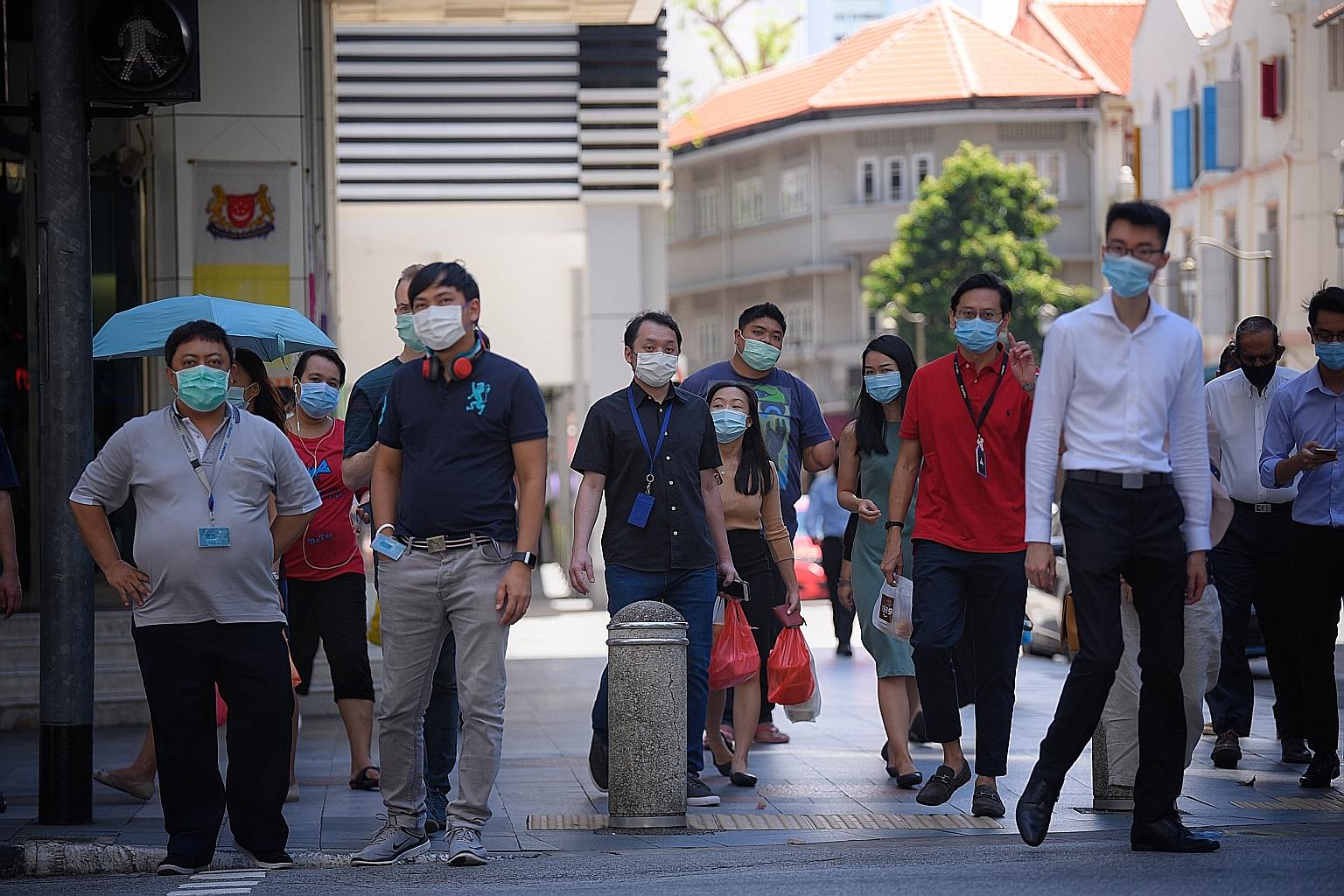Observers call on National Wages Council for more aggressive wage support, office to look after gig workers
They urge NWC to propose office to look after gig workers and pay hikes for low-wage staff
Sign up now: Get ST's newsletters delivered to your inbox

Without the prospect of a near-term recovery of demand, there could be more job losses and wage cuts on the horizon, said Institute for Human Resource Professionals chief executive Mayank Parekh.
ST PHOTO: MARK CHEONG
In September and October 1998, as the full impact of the Asian financial crisis on Singapore's economy became more apparent, the National Wages Council (NWC) was convened a second time that year to revise its annual wage guidelines.
Its original guidelines, issued in May, had called for wage restraint and non-wage cost-cutting measures, as the Trade and Industry Ministry forecast economic growth for the year of between 2.5 per cent and 4.5 per cent.
But as the crisis deteriorated, the growth forecast for the year was revised downwards in June to between 0.5 per cent and 1.5 per cent.
The NWC in November proposed that in addition to a 10 percentage point cut to employers' Central Provident Fund (CPF) contributions recommended by the Committee on Singapore's Competitiveness, total wages for 1998 be cut by 5 per cent to 8 per cent, as compared with 1997.
This year, with Singapore headed for its worst recession since independence due to the Covid-19 pandemic, observers suggested that the council consider calling for more aggressive wage support, an office to look after gig workers and pay hikes for low-wage staff.
Manpower Minister Josephine Teo said in a Facebook post yesterday that the NWC will reconvene this year. The council made its annual wage guidelines in March this year.
Institute for Human Resource Professionals (IHRP) chief executive Mayank Parekh said that without the prospect of a near-term recovery of demand, there could be more job losses and wage cuts on the horizon.
"It is timely for the NWC to review its earlier recommendations and seek support for additional measures to safeguard jobs and enhance employability," he said.
"More aggressive wage measures, higher support for job redesign and re-training and additional guidelines on retrenchment payments could be considered."
Singapore Human Resources Institute president Low Peck Kem suggested the council look at whether the Jobs Support Scheme of wage subsidies can be extended, as well as the need for funding to facilitate job redesign for future-ready jobs.
It could also propose the setting up of a tripartite office to help and protect gig workers, who tend to fall under the radar because they do not have employers, she said.
National Trades Union Congress (NTUC) assistant secretary-general Zainal Sapari said the NWC should continue to push for wage increases for low-wage workers, even amid the pandemic.
"Instead of recommending a quantum wage increase, I would like NWC to set a long-term target of where wages of these vulnerable low-wage workers who are performing essential services should be at. This could then act as a guideline for the wage increases and the necessary productivity initiatives that must be embarked upon to make it sustainable," he added.
This is only the fourth time since being set up in 1972 that the council has been convened twice in the same year.
Aside from 1998, it also released revised recommendations in 2001, after the Sept 11 attacks on the United States, and in 2009 amid the global financial crisis.
In January 2009, the council updated its guidelines to recommend - among other things - that companies work with unions and workers to manage costs, such as through wage freezes or wage cuts, to save jobs.
The NWC had in March this year considered whether to recommend reducing CPF contribution rates to cut wage costs.
But Permanent Secretary for Manpower Aubeck Kam had said then that as the Jobs Support Scheme wage subsidy far exceeds the employer CPF contribution rates of up to 17 per cent, the Government did not feel that a cut to the rate was warranted.
DBS Bank senior economist Irvin Seah said that short of extending the JSS payouts for worst-hit industries, a temporary cut in employer CPF contribution rates could be an option the NWC considers.
But he cautioned that such a move would need to be weighed very carefully. "It would be a reduction in workers' savings, on top of already widespread wage cuts."
Amid reports of major retrenchment exercises in recent weeks, Mrs Teo also commented yesterday on the Fair Retrenchment Framework proposed by the NTUC last month. It includes protecting the Singaporean core of the workforce, while foreigners with special or critical skills could be retained as well.
She said in her Facebook post that the Singapore National Employers Federation will consider the framework and discuss a mutually acceptable way forward with NTUC.
In the meantime, the Manpower Ministry will continue its work on the Fair Consideration Framework, she said, adding that there would be updates soon.
"Tripartite partners are aligned on one thing - the need to support our workers and businesses through the storm brought about by Covid-19. Much work ahead," she said.


